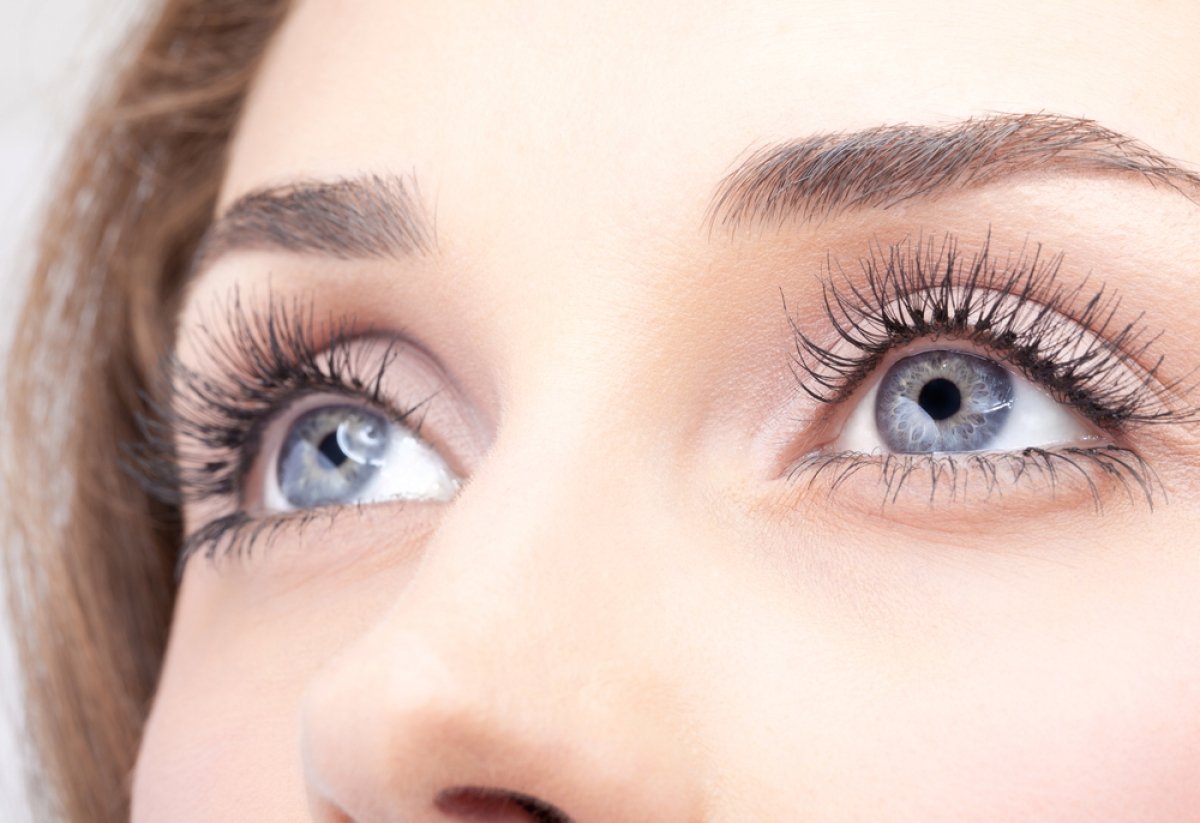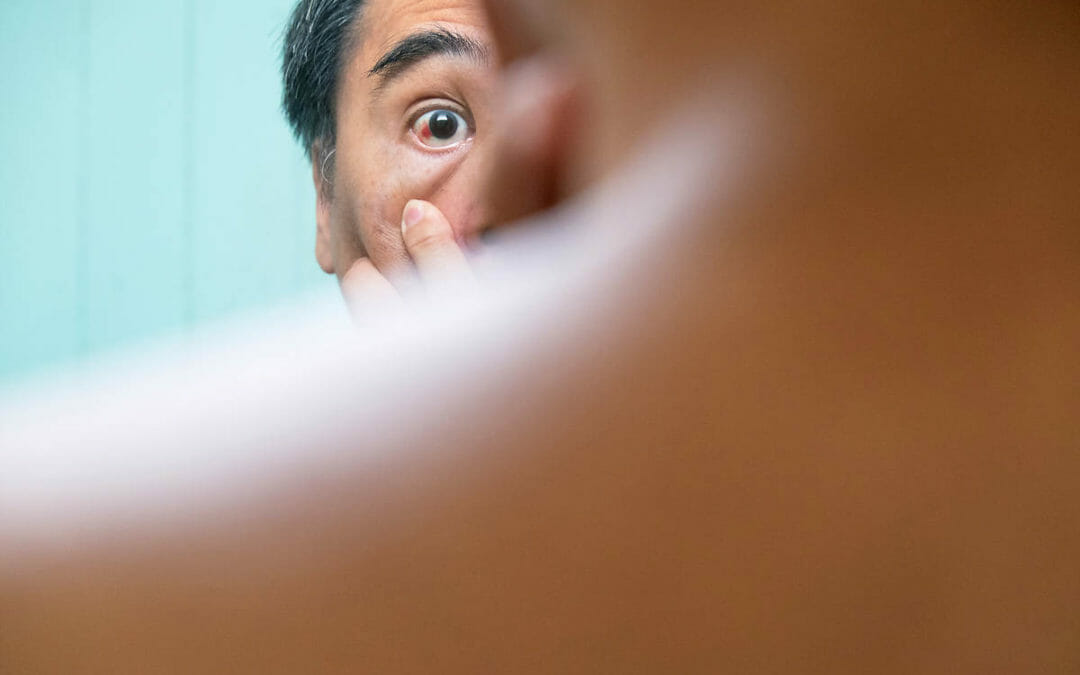The repetitive removal of mucus strands in the eye technically causes mucus fishing syndrome (hence the “fishing” in the name).
Someone with mucus fishing syndrome regularly finds white stringy mucus in their eye and “fishes” it out—typically with their finger or a cotton swab. As the mucus is pulled, it looks like long white strings coming out of the eye.
Powerful Treatment With TheraLife
Treat your dry eyes to get rid of mucus fishing syndrome
Introduction
The mucus fishing syndrome occurs as the mucus continues to accumulate from the eyes. The name refers to how people fish the strand out of the eye. Mucus may be present on eyes for several reasons including irritation and infection. When one pulls out the mucus, it can cause irritability of the skin and causes further development of mucus in the eye. The more people remove the mucus the more the eyes produce.
In response to irritation, ocular surface cells produce excess mucus. A “snow balling” cycle begins when the patient extracts (“fishes”) excess mucus from the ocular surface, thereby causing further irritation and a more-profound mucous discharge.
But it is possible to break these patterns.
What Causes Mucus Fishing Syndrome (MFS)
Common causes include Dry Eye, viral and allergic conjunctivitis, blepharitis and pterygium. For whatever reason, the eyes produce more mucus and patients naturally clean it away.
It is possible to develop multiple eye diseases that cause eye inflammation which results from excessive eye mucus.
Mucus fishing is both something that patients do and a medical diagnosis. Patients with MFS literally “fish” mucus out of their eyes with their finger, a tissue, cotton bud etc.
Why does it occur?
In most cases a past or ongoing disease triggers excess mucus production.
Dry eye syndrome
The dry eyes cause poor quality tears that lack lubrication to the eyes. It may result from excessive tears in our eyes. If you touch your eyes it will cause a rash, infection.
Blepharitis
Blepharitis is where infections on the eyelids causes irritation and excessive tear production, leading to crust in the eyelashes.
Pink eye (Conjunctivitis)- eye infection
Pink eyes are an eye infection primarily caused when the inside surface and outer coatings on eyelids get inflamed due to a bacteria or virus.
Symptoms of bacteria, infections, or allergies may also occur. In addition to those red eye spots there will be an itchy appearance and an enlarged mucus lining.
Body focused repetitive behavior (BFRB) disorder
Mucus Fish syndrome may be caused primarily by body focused repetitive behaviors (BFRB) disorder.
Often the process involves repetitive hair pulling, finger pulling and finger biting, skin picking and nail biting. It’s not just a habit. These actions are very difficult for anyone and can cause severe illness and serious injuries.
If you have Body Focused Repetitive disorder, you may want to feel more positive when it comes to stress or boredom. BFRB usually begins during a young age. It can be devastating for about one in ten Americans.
Whatever reason, the eyes produce more mucus and patients naturally clean it away. Unfortunately, touching the very sensitive tissues on the surface of the eye or inside of the eyelid causes more inflammation and greater mucus production.
Even if the original problem goes away a vicious cycle of mucus production and fishing continues. It’s hard to resist once it’s become a habitual thing, but avoiding that urge is the key to stopping the excessive mucus production.
But repeatedly pulling mucus from your eye actually causes more eye irritation, which leads to more eye mucus production.
Mucus Fishing Syndrome Mucus fishing is the latest trend on TikTok and Instagram.
How to Get Rid of Mucus Fishing Syndrome in Your Eyes
Treatments for mucus fishing have been described in detail as the most essential step in stopping mucus fish behavior. Once this is an habit it becomes very hard to stop it and avoid it. it will stop mucus being created.
Call your eye doctor. Your doctor may examine the eye and determine the causes and effects of the mucus and suggest an intervention. If you are able to stop fishing habits you should stop generating excessive mucus from your eyes.
Some people — especially with trichotillomania (hair-pulling disorder) — have a tendency to pull their lashes out, That can traumatize the surface of the eye and start the cycle of increased mucus production as the eye tries to heal itself.
How is mucus fishing syndrome diagnosed?
Once you’ve been diagnosed with mucus fishing syndrome, your doctor will want to identify the original cause of your eye irritation. Your doctor will examine both the surface and back of the eye. They’ll need to dilate your eyes in order to do this.
How is it diagnosed?
Occasionally patients report what they are doing, making the diagnosis easy. Others are not aware of their actions and some are embarrassed to tell their story.
It is important that eye doctors think about the condition, especially when they observe excess mucus in the tears. The best way to diagnose MFS is to ask patients to show you exactly what they do to clean their eyes. If their finger or a tissue touches the surface of the eye or the inside of the eyelid the diagnosis is clear.
Two elements are needed to diagnose mucus fishing syndrome,
• A history of recurrent production of mucus and its removal from the ocular surface.
• An objective correlation between the area of digital extraction and a staining pattern using rose bengal. Staining on the ocular surface matches where the patient pulls away mucus.
You may have mucus fish syndrome or have trouble managing it. They can sometimes find the signs of damage when they look in the eye but mucus fishing syndrome has been overlooked for several reasons, including the causes. Ideally, the symptoms should be mentioned directly to a physician if the condition occurs. Despite the difficulties, many patients have no idea that they’re frequently touching their eye, which complicates the diagnosis.
How to treat Conjunctivitis
Conjunctivitis is a common cause to accumulate mucus in a person. Sometimes it causes irritation and inflammation that may cause you to rub your eyelids a lot, but it may cause more problems in itself as well. When you touch your eyewear, make certain you wash it thoroughly before applying. To remove any crust on your lashes, apply a wet wipe to the edges of the eyelid. Use fresh ingredients at the eye so you can prevent spreading infections.
Conjunctivitis usually clears up within 14 days of diagnosis, however there are antibiotic drops that can take longer or reappear more severe.
How is mucus fishing treated?
Treat underlying conditions.
The most common causes of MFS that require ongoing management are allergy and Dry Eye. Treatment with anti-allergy drops such as sodium cromoglycate and non-preserved artificial tears may be necessary. The good news In almost every case mucus production will resolve within two weeks as long as the fishing stops.
It is best for the eye to be allowed to work naturally on the mucous instead of using fingers or cotton buds. Then the mucus will start to form directly in the eye. This could also be used for lubricating eye drops, cold compresses, steroid eye drops or antibiotic drops.
Frequently Asked Questions
What is the treatment for mucus fishing syndrome?
First line of treatment for mucus fishing syndrome is to stop the bad habit of pulling strings of mucus out of your eyes.
How do you know if you have mucus fishing syndrome?
If you have mucus fishing syndrome, you constantly pull strings of mucus out of your eyes, damaging the conjunctiva.
Is mucus fishing syndrome rare?
Conclusion
Breaking a habit can take time, especially if it’s a longstanding habit.
Treating dry eye syndrome, conjunctivitis, or other diagnosed conditions will encourage your eye to produce less mucus. This should make it easier for you to stop the mucus pulling habit.
When you do manage to break the habit and underlying issues are resolved, the condition should clear up. If you experience eye irritation in the future, refrain from touching your eyes or pulling at mucus. See your eye doctor right away.
References
Mucus fishing syndrome: case report and new treatment option W S Slagle 1 , A M Slagle , G H Brough Affiliations Expand Affiliation 1 Virginia Eye Clinic, Salem Veteran’s Affairs Medical Center, 24153, USA. [email protected] PMID: 11712630
Guvenc-Ibas U, Sanli A, Yalniz-Akkaya Z, Uzman S, Singar E. Mucus fishing syndrome: a case with sterile corneal ulcer . Clin Exp Ocul Trauma Infect . 2019 Aug 30:109–111.
Body-focused repetitive behaviors: Hair pulling, skin picking, and related disorders. (2016) bfrb.org/storage/documents/Expert_Consensus_Treatment_Guidelines_2016w.pd





